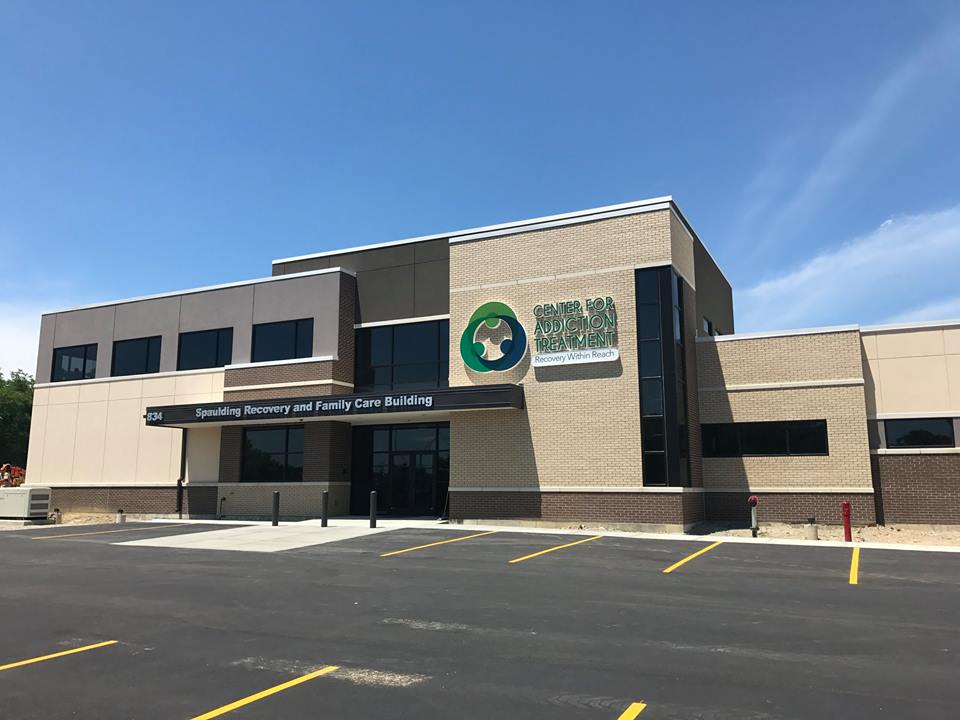Browsing the Trip of Cleansing in the Comprehensive Dependency Therapy Program
Starting the course of detoxification within the structure of a detailed dependency therapy program is a crucial stage in the trip towards healing. The process of detoxing holds a considerable role in damaging the physical dependancy on substances and preparing the person for the subsequent stages of treatment. Nevertheless, browsing via detoxing is not simply a matter of physical cleansing; it requires a complicated interaction of emotional, psychological, and social variables that call for cautious factor to consider and support. As individuals grapple with the difficulties of withdrawal signs and symptoms and the uncertainties that exist in advance, having a robust support and an organized plan system in location becomes extremely important. In this conversation, we will certainly check out the multifaceted facets of cleansing within the thorough dependency treatment program and shed light on the essential parts that shape this transformative journey towards recuperation.
Value of Cleansing in Healing

Detoxing sets the foundation for the remainder of the addiction therapy program by preparing the person for further therapy and counseling. By cleansing the body of compounds that have actually been clouding judgment and impacting habits, detoxification makes it possible for clients to approach their recuperation with a more clear mind and stronger emphasis.
In addition, cleansing aids in managing the potentially severe withdrawal symptoms that might arise when medication or alcohol use is stopped. Physician carefully monitor patients throughout detoxification to ensure their safety and security and give needed assistance. Via this procedure, people can begin their trip towards soberness with a supported physical and psychological state, boosting the likelihood of an effective recovery.
Understanding the Detoxification Process
Cleansing, a fundamental element of addiction therapy programs, includes an organized process focused on safely eliminating dangerous compounds from the body to assist in an effective recuperation journey. The detox process normally begins with an analysis to assess the person's substance use background, physical wellness, and mental health. This analysis helps medical care experts figure out the most suitable detox strategy tailored to the individual's requirements.
Throughout detoxification, the body undergoes withdrawal as it adapts to the lack of the material. Withdrawal signs and symptoms differ depending upon the sort of material made use of, the period of use, and individual aspects. Clinical guidance throughout detoxification is essential to take care of withdrawal signs and symptoms and guarantee the individual's security and comfort.

Handling Withdrawal Signs

Drugs may be utilized to reduce certain withdrawal signs and minimize discomfort. As an example, drugs like methadone or buprenorphine can aid handle opioid withdrawal symptoms, while benzodiazepines might be made use of for alcohol withdrawal. It is crucial for doctor to very carefully monitor the individual's response to these medicines to guarantee their safety and security and efficiency.
Along with pharmacological interventions, helpful treatments such as therapy, peer assistance teams, and alternative methods like mindfulness meditation or yoga can assist people deal with the emotional and emotional difficulties of withdrawal. By dealing with withdrawal signs adequately, medical care service providers can enhance the detoxing experience and support people on their journey to healing.

Assistance Equipments Throughout Detox
Support group play a critical function in providing emotional and social aid to individuals undergoing cleansing in dependency treatment programs. During the detoxification procedure, people usually experience a variety of mental and physical withdrawal signs and symptoms, making this stage tough - Addiction Treatment Center. Having a solid support group in position can considerably affect the individual's capability to navigate through detox effectively
Relative, pals, support groups, and healthcare professionals are vital components of the support group. Family members buddies and members can supply motivation, understanding, and a sense of belonging during this challenging time. Assistance groups supply a platform dig this for people to get in touch with others that are experiencing similar experiences, supplying a feeling of community and shared understanding. Healthcare specialists, including specialists, physicians, and counselors, play a critical duty in keeping track of the individual's development, offering clinical support, and supplying support throughout the detox procedure.
Looking Ahead: Life After Detox
Having effectively finished the detoxification phase, individuals in addiction treatment programs now concentrate on preparing for the challenges and chances that lie ahead in their journey towards recovery. Life after detox marks an essential shift period where individuals should remain to develop on the development made throughout detox to keep their sobriety. It is vital for individuals to recognize that the journey towards recuperation is recurring and calls for commitment, commitment, and a determination to embrace change.
One key aspect of life after detoxification is the advancement of coping systems to deal with triggers and yearnings that may emerge. This might include finding out brand-new skills, such as mindfulness practices, cognitive-behavioral techniques, and stress and anxiety monitoring methods, to navigate challenging scenarios without considering compound usage. Furthermore, individuals are encouraged to actively take part in continuous therapy, support teams, and aftercare programs to strengthen their support network and get advice as they browse the complexities of life post-detox.
Final Thought
In conclusion, detoxification is a crucial part of the comprehensive dependency therapy program. Recognizing the detox procedure and managing withdrawal signs and symptoms are vital steps in the direction of recovery. Support group play a considerable role throughout this challenging trip. Addiction Treatment Center. Looking ahead, life after detoxification holds promise for a much healthier, substance-free future. It is important to identify the importance of detox in the procedure of getting over addiction and relocating in the direction of a life of soberness.
Medical guidance throughout detoxification is important to take care of withdrawal symptoms and guarantee the person's safety and security and comfort.
By comprehending the detoxification procedure and its importance in damaging the cycle of addiction, individuals can begin on a course in the direction of lasting recovery.
During the detoxification procedure, individuals typically experience an array of physical and psychological withdrawal signs and symptoms, making this phase challenging. Healthcare experts, this link including therapists, specialists, and medical professionals, play an essential function in keeping an eye on the person's progress, providing medical support, and offering guidance throughout the detox procedure.
Life after detoxification notes an essential change duration where individuals should continue home to develop on the development made during detox to keep their soberness.